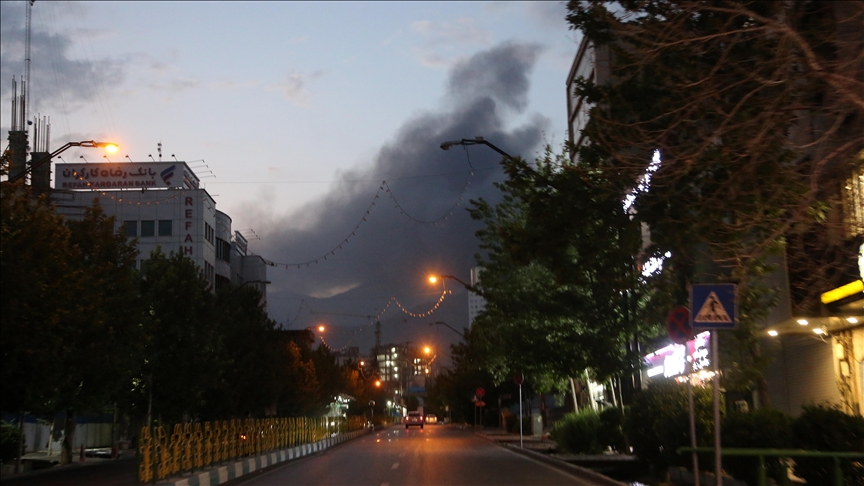Gulf Cooperation Council warns of ‘alarming scenarios’ amid ongoing Israel-Iran conflict
GCC ministers urge restraint and diplomatic solutions as Israeli-Iranian hostilities enter 4th day, raising fears of nuclear fallout and regional instability
 Israel strikes Iran state TV building
Israel strikes Iran state TV building
ISTANBUL
The Gulf Cooperation Council (GCC) on Monday warned of “alarming and ambiguous scenarios” resulting from Israel’s ongoing strikes against Iran, now in their fourth day, and urged all parties to exercise restraint and halt military operations.
In an emergency ministerial meeting held via videoconference, foreign ministers from Saudi Arabia, the United Arab Emirates, Qatar, Kuwait, Oman, and Bahrain convened under the chairmanship of Kuwaiti Foreign Minister Abdullah Al-Yahya. GCC Secretary-General Jasem Albudaiwi also participated in the session.
The region has recently witnessed “an extremely dangerous and unprecedented escalation” due to Israeli strikes on Iranian territory and Tehran’s retaliatory attacks, Albudaiwi said. He warned that the situation has “alarming and ambiguous scenarios.”
“These developments have undermined political and diplomatic efforts, leading to the collapse of dialogue initiatives,” he said, adding that all GCC member states condemned the Israeli strikes.
The secretary-general noted that, while technical indicators remained within safe levels, the GCC has entered a state of full alert to ensure readiness and continuous monitoring.
He also expressed concern over the broader consequences of the conflict, particularly if it involves strikes on nuclear facilities. He highlighted the potential risks to the environment, public health, critical infrastructure, and regional economies, including disruptions to supply chains, trade, energy, and sea routes.
In response to the situation, the GCC activated its Emergency Management Center to implement precautionary measures across environmental and radiological domains, Albudaiwi said.
He reaffirmed the GCC’s commitment to de-escalation, dialogue, and preventing the Gulf from sliding into a broader, uncontrollable conflict.
The council renewed its call on all states and actors involved to refrain from military action and return to diplomacy to avoid further destabilization of the region.
Regional tensions have escalated since Friday, when Israel launched coordinated airstrikes on multiple sites across Iran, including military and nuclear facilities, prompting Tehran to launch retaliatory strikes.
Israeli authorities said that at least 24 people have been killed and hundreds injured in Iranian missile attacks since Friday.
Iran, for its part, said that at least 224 people have been killed and over 1,000 others wounded in the Israeli assault.
Anadolu Agency website contains only a portion of the news stories offered to subscribers in the AA News Broadcasting System (HAS), and in summarized form. Please contact us for subscription options.


